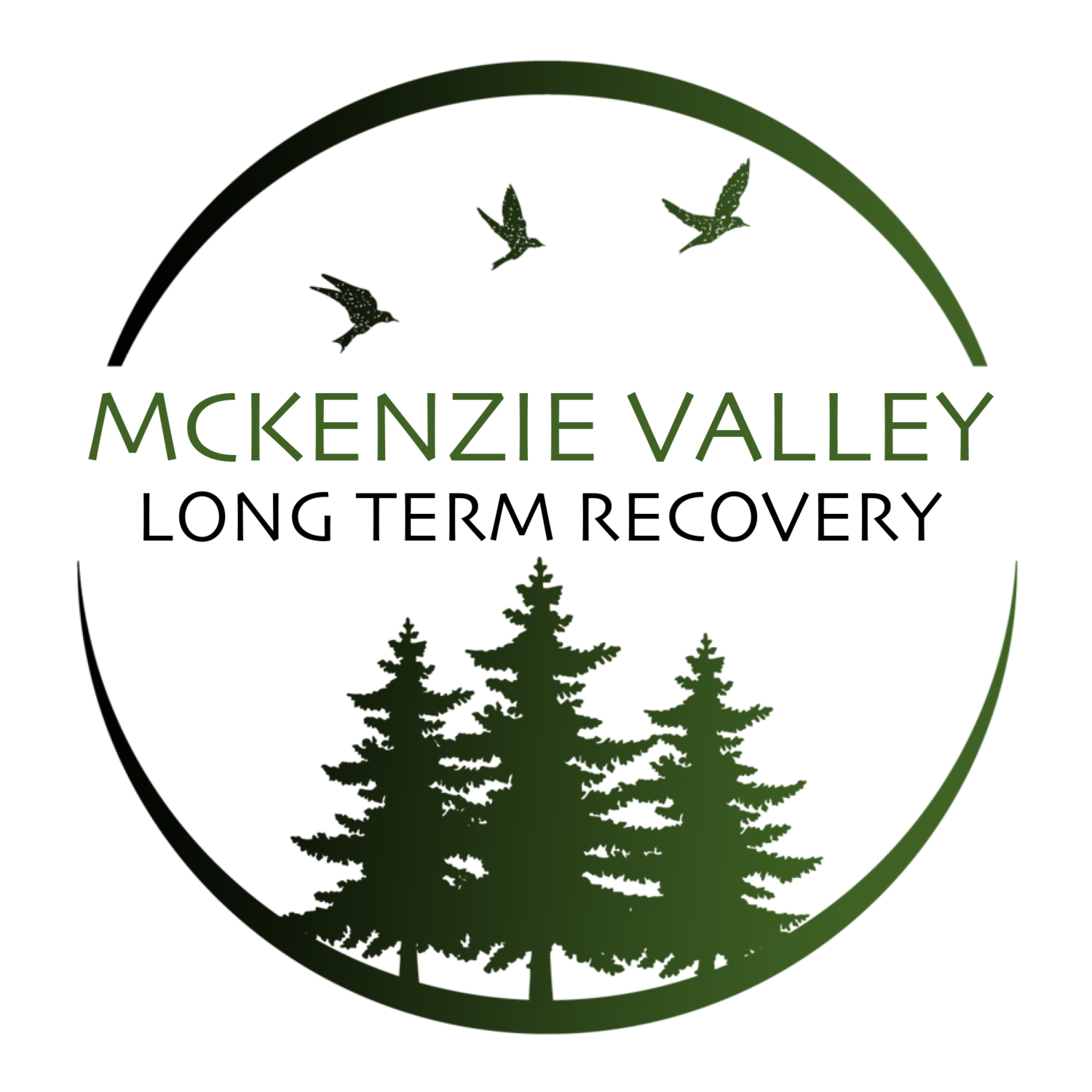My Oregon News: “Rebuilding From Wildfire”
Read this whole article on My Oregon News here!
BY CHRISTINE DECKER ON OCTOBER 26, 2022
From the Holiday Farm Fire to the Cedar Creek Fire – it takes a community helping each other to survive, rebuild, and eventually reach well-being
Recently, the survivors of Oregon’s Holiday Farm fire recognized the two-year anniversary of that destructive force that ripped through their community destroying more than 600 homes and businesses. The Holiday Farm Fire was one of the largest fires in Oregon’s history burning more than 173,000 acres. It started Sept. 7 and raged on until Oct. 29, 2020. The communities of Blue River, Finn Rock, Nimrod, Vida and Leaburg along the McKenzie River Valley in Lane County suffered tremendous losses.
Holiday Farm Fire. Photo courtesy of InciWeb – Incident Information System
People were traumatized, not knowing what to do or where to turn for help in either rebuilding, finding a place to live or in moving. At first there was help from organizations such as the American Red Cross, United Way, Lovefirst Disaster Relief, and the Multi-Agency Shelter Transition Team and Disaster Case Management, both Oregon Department of Human Services (ODHS) programs, as well as others. Then in 2021, at the request of Lane County, the McKenzie Valley Long Term Recovery Group of Lane County (LTRG) was formed and brought additional and much needed assistance. The group is comprised of valley residents to help people rebuild and in general, to help the fire survivors with their unmet needs. And, two years later the McKenzie Valley LTRG is still working – with the help of many community groups to fill many unmet needs. Rebuilding is not done overnight.
“The McKenzie Valley Long Term Recovery Group of Lane County took a lot of effort from many to form, but we are well recognized now thanks to a great Executive Director, Devin Thompson, and a very active Board of Directors. The LTRG is looking forward to adding staff members and expanding our role to be ready when the next disaster hits,” Nelda Engstrom, program director, said. And if there is a tiny sliver of a silver lining, it was because of the Holiday Farm Fire that this group formed and was adept at jumping in and helping in this year’s Cedar Creek Fire in Lane County.
Engstrom recently visited the Oakridge Fire Department. She was looking at all the maps of the Cedar Creek Fire. It’s estimated that this fire, which started Aug. 1, is burning on more than 122,00 acres as of Oct. 10.
Cedar Creek Fire
“An important relationship formed out of the Holiday Farm Fire. After a disaster there needs to be a long-term recovery group helping survivors. The McKenzie Valley Long Term Recovery Group has really become a community partner – they were immediately ready to help out with the Cedar Creek fire. Relationship building is essential for future disaster work,” Terra Ralph, Interim Regional Emergency Coordinator for the Oregon Department of Human Services Office of Resilience and Emergency Management (OREM) for Lane, Douglas, Coos, Curry, Josephine and Jackson counties.
Ralph’s Lane County team includes a ODHS Disaster Case Manager and a Shelter Liaison. There are also Disaster Case Managers on the team from Catholic Charities of Oregon and DevNW, a non-profit, which helps grow vibrant Northwest communities.
There are still about 57 people, including children, in shelters from the Holiday Farm Fire. The team also assists survivors with accessing ODHS benefits such as food and health care coverage.
“Because of our relationship with the McKenzie Valley Long Term Recovery Group it helped us establish trust with survivors. They’re local and they are trusted,” Ralph said.
It takes everyone in a community to bring about well-being for individuals. Engstrom’s group coordinates with partners in county and state governments, McKenzie schools, community-based and grassroots organizations, the businesses community and many others to rebuild a vibrant community.
Recovery from the Holiday Farm Fire – and most likely true for all recent wildfires – is a slow process for many reasons.
Almost everybody is severely underinsured. There is a lack of builders. The cost of building materials has skyrocketed. Many people are retired and on fixed incomes and can’t afford the increased costs. The McKenzie Valley LTRG holds an ‘unmet needs roundtable’ with groups such as the Rotary District, United Way and the grassroots group Locals Helping Locals to learn what people need and to combine resources. These needs could be money, labor force or materials to help survivors rebuild their homes to be safe, sanitary and secure.
“Even if you get your house rebuilt there will be a few more things you need and you’re out of money. We help with last mile projects — gravel, electrical work, plumbing, wells, appliances, household goods and rental assistance before your house is finished. The list goes on and on,” Engstrom said.
Ralph said she finds this work at ODHS very rewarding.
“Obviously it’s hard work. But anything we can do to reduce retraumatizing people and make process easier for them. They’ve been through enough already. We just try to help people work through it,” she said.
And hopefully, little by little a community with the help of agencies, nonprofits, businesses and individuals pitching in – people, families, children, do recover and there is well-being recaptured.
ABOUT AUTHOR
Christine Decker is a Public Affairs Specialist for the Oregon Department of Human Services. Before working in communications she was a working journalist.
